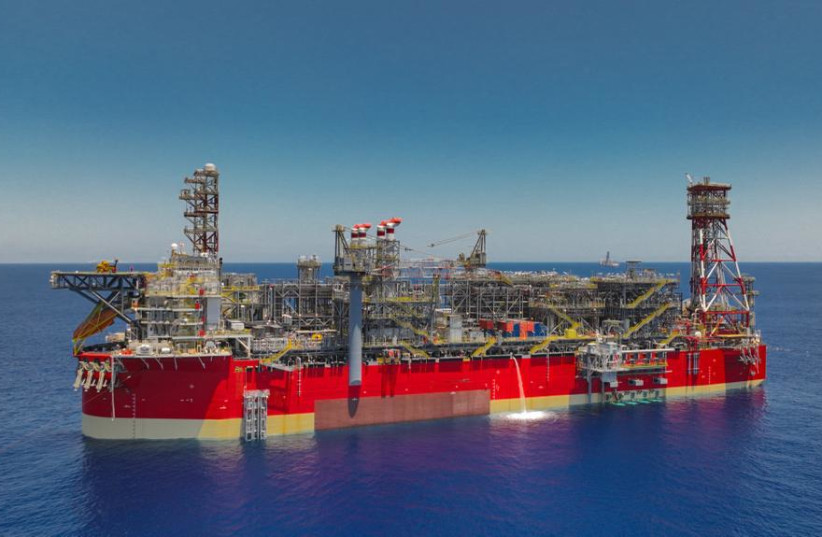The Israel-Lebanon maritime deal is in the interests of both countries. A maritime deal can help unlock energy security for both states at a time when the world needs new and secure natural-gas supplies due to the ongoing war in Ukraine.
Israel has much to gain from the current talks. That does not mean, however, that Israel must make a deal at any price. Lebanon appears to be pushing for last-minute changes to a US-backed deal that President Joe Biden’s energy envoy, Amos Hochstein, has worked on for the past year.
Prime Minister Yair Lapid is right to say that Israel will not compromise on its security and economic interests. Several entwined issues are at stake.
Israel wants the Karish gas field to begin production, and Energean, which developed the field, is ready to move ahead.

The terrorist group Hezbollah, backed by the Islamic Republic of Iran, however, is openly threatening the field – not only launching drones, but prodding Lebanon to increase rhetoric against Israel’s exploitation of these resources off its coast.
The deal that has been worked on with US support would see Israel receive royalties from gas that Lebanon extracts in the disputed area of the Mediterranean Sea, but Israel would concede a triangle of economic waters.
Lebanon only recently asserted more claims to these waters. Lebanon also wants to develop a field called Qana that extends into areas Israel claims.
The current deal would preserve a line of buoys that extends some five kilometers off the coast into the sea.
Then the line would deviate slightly and give Lebanon more of the area it wants. It appears that this would be in the interests of other countries as well, such as France.
Lebanese block 9 of its offshore concessions could lead to exploitation of the Qana field, but Lebanon does not want Israel receiving any share of profits from that field.
This creates complexity. In the past, it was assumed that trade and economics could underpin peace in the region. Lebanon needs investment, and Hezbollah is busy siphoning off money from the state.
But in this case, while the ongoing dispute over the gas fields is increasing tensions, the question is if we can all be far-sighted and see into a future of peace and prosperity that includes Lebanon and Israel and the wider region.
Israeli election has major impact on Lebanon deal
The upcoming Israeli election also hangs over the current discussions. Opposition leader Benjamin Netanyahu has opposed Lapid’s decisions and has openly said the deal, which he views as surrender to Hezbollah threats, would not bind a new government that he seeks to establish after the November election.
This could create another strange situation in which one Israeli government accepts the deal and the next tears it up, the way the US shifted tactics on the Iran deal.
This would lead to tensions and accusations that Israel is then “crossing” the line and give Hezbollah an excuse to “resist” by firing rockets.
Hezbollah lives on this fake “resistance” narrative, just as it pretends to need to fight for Mount Dov in the North. Now it will have a reason to exist to “defend” the coastline. Israel must be careful not to create a situation where it concedes too much and then the next administration goes back over the line and creates a possible conflict.
We are a strong nation and must be respected. Lebanon should not think it can throw endless small hurdles up just before the deal is agreed to. Israel does not need to give away more to Lebanon and let Lebanon spurn us and treat us like we are a “Zionist entity” and not a country.
For too long, Israel was rejected in the region, but today we have good friends from Morocco to the United Arab Emirates.
We should make a deal, but Lebanon should stop letting Hezbollah and Iran hold its hand all the way to the table.
We can have secure borders and economic prosperity that will benefit Lebanon and ourselves.
